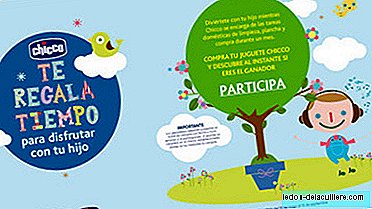
Recently the International Lactation Consultant Asociation has published a document in which it provides 10 more reasons to breastfeed, to add to those already known and defended by the world's leading bodies for the promotion of maternal and child health.
They have based these 10 elections on scientific studies published in the last 10 years, which reinforce the benefits of breastfeeding already known with new data backed by research professionals and prestigious journals and institutions.
The breastfeeding benefits they are increasingly known and widespread, but it is necessary, in my opinion, that they continue to improve support and information networks for mothers who wish to breastfeed and find difficulties, without neglecting the need to investigate to ensure that milk it is provided to children who, for whatever reason, are going to be bottle fed, have all possible guarantees and improve their quality through independent scientific research.
Breastfeeding exists as long as humanity. Modern research methods allow us to measure the positive impact that this simple and loving activity can have on the health of the mother and the child. Have you read these recent studies?
The ten more reasons to breastfeed they cite are divided into five referred to children and five referred to mothers, because breastfeeding in general terms is also beneficial for them.
Benefits for the child:
Lower risk of adult obesity: A study in Finland showed that breastfed people for 5-7 months had the lowest BMI (Body Mass Index) reported at 60 years of age.
Lower blood pressure: In a European study, children who were breastfed had, on average, lower blood pressure than those who were not. The discrepancy was greater the longer the child had been breastfed.
Lower risk of osteoporosis: An Australian study demonstrated a relationship between breastfeeding in early life and bone mass in children 8 years of age born full-term, particularly in those breastfed for 3 months or more.
Improvement of lung function: Breastfeeding for at least four months improves lung volume in children. This change in volume will reflect the amount of air flow the child receives.
Lower risk of Sudden Infant Death Syndrome (SIDS, Sudden Infant Death Syndrome): A German study of 333 infants who died of sudden death syndrome and 998 age-adjusted controls found that breastfeeding reduced the risk by 50% at all ages throughout childhood.
Benefits for the mother:
Lower blood pressure: Both systolic and diastolic pressure drop during a breastfeeding session and pre-breastfeeding blood pressure drops during the first 6 months in a suitable environment. Jonas EW, Nissen AB, et al. Breastfeeding Medicine 3 (2): 103-109,
Less stress: Breastfeeding is associated with a lower neuroendocrine response to stressors, improved mood and improved physical and mental health.
Lower risk of rheumatoid arthritis: A Swedish study found that women who breastfed 13 months and more were half as likely to have rheumatoid arthritis as those who never did.
Lower risk of metabolic syndrome: A group of risk factors that increase the likelihood of heart disease and diabetes was more rare among women who reported breastfeeding their babies. The longer they breastfed during the first nine months, the less likely they were to be diagnosed with the metabolic syndrome during a 20-year study.
Lower risk of cardiovascular disease: In premenopausal women, the longer duration of breastfeeding has been associated with a lower prevalence of hypertension and cardiovascular disease.
No doubt you are ten new reasons to breastfeed These are factors to take into account and, on the website of the International Lactation Consultant Association, a professional network of lactation consultants at international level and that is supported by solid medical studies, we can find all the information on which they support these statements.
Official site | ILCA












